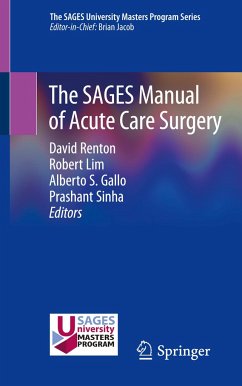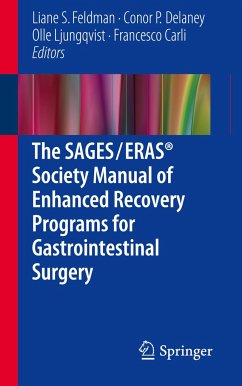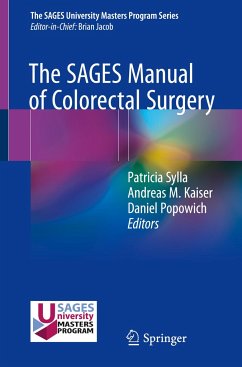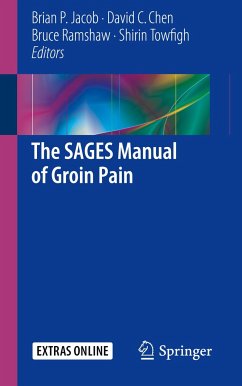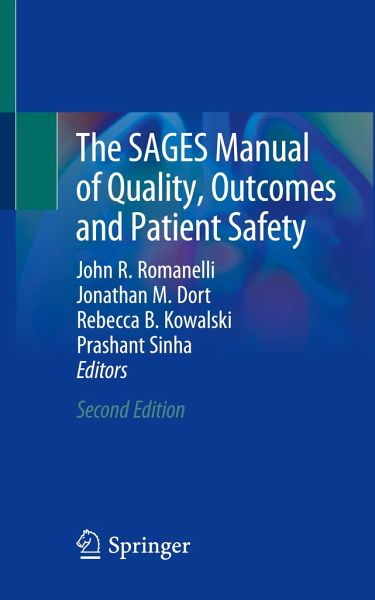
The SAGES Manual of Quality, Outcomes and Patient Safety

PAYBACK Punkte
41 °P sammeln!
In this thoroughly revised second edition of the frequently downloaded manual, The SAGES Manual of Quality, Outcomes, and Patient Safety. A panel of experts update and expand their survey of the many factors that influence quality in the world of surgery, surgical outcomes, and threats to patient safety. Among the highlights include a section devoted to threats to quality and outcomes and safety, such as surgeon wellness and burnout, disruptive behavior, second victims, the surgeon with declining skills, and maintaining quality in the setting of a crisis. Another all-new section focuses on sur...
In this thoroughly revised second edition of the frequently downloaded manual, The SAGES Manual of Quality, Outcomes, and Patient Safety. A panel of experts update and expand their survey of the many factors that influence quality in the world of surgery, surgical outcomes, and threats to patient safety. Among the highlights include a section devoted to threats to quality and outcomes and safety, such as surgeon wellness and burnout, disruptive behavior, second victims, the surgeon with declining skills, and maintaining quality in the setting of a crisis. Another all-new section focuses on surgical controversies, such as whether or not to use robotic surgical technology and whether or not it influences surgical outcomes; whether or not routine cholangiography reduces the common bile duct injury rate; whether or not having a consistent operating room team influences surgical outcomes, and whether a conflict of interest truly influences surgical quality. Further, this manual updates chapters on surgical simulation, teamwork and team training, teleproctoring, mentoring, and error analysis.
State-of-the-art and readily accessible, The SAGES Manual of Quality, Outcomes, and Patient Safety, Second Edition will offer physicians strategies to maintain surgical quality in a rapidly changing practice environment the tools they require to succeed.
State-of-the-art and readily accessible, The SAGES Manual of Quality, Outcomes, and Patient Safety, Second Edition will offer physicians strategies to maintain surgical quality in a rapidly changing practice environment the tools they require to succeed.




